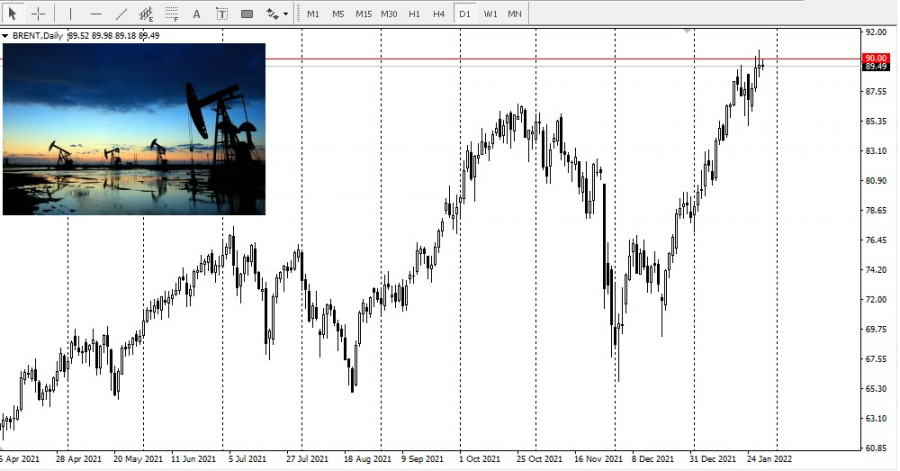

Escalating tensions between Russia and Ukraine could throw the commodity market into disarray, with the EU being hit the most, a report by ING said.
Commodity prices would go up, and the market would be rattled if the US enacts tough sanctions against Russia. There is still uncertainty over how the situation will evolve.
Sanctions would likely lead to a significant tightening in energy, metal, and agricultural markets, pushing up commodity prices. Natural gas would likely receive the most attention - any sanctions related to the energy sector would severely affect the EU during winter, as Russia remains its dominant supplier.
At this moment, Europe's gas balance is extremely tight, making the region extremely vulnerable to supply disruptions. Currently, Russia constitutes 46% of EU's natural gas imports. Several gas pipelines are located in Ukrainian territory.
The US has already made it clear that the Nord Stream 2 pipeline would be targeted in the event of sanctions. "It would be difficult for Europe to stomach sanctions which effectively cut off Russian gas supply, or at least a large portion of these flows, given the region's dependency on Russian gas and the ongoing energy crisis," the report said.
Sanctions on Russia would also increase pressure on the crude oil market, which is already in a bull trend. The price of Brent crude oil has approached $90 per barrel. Russia is the world's second largest producer of crude oil with production averaging around 10.5 million barrels per day in 2021. Most of the oil is refined at domestic refineries, but a significant amount of it is still exported, making Russia the second largest oil exporter after Saudi Arabia. Any actions affecting Russian crude oil exports would likely lead to a deficit in the market.
Russia is the world's second largest producer of crude oil with production averaging around 10.5 million barrels per day in 2021. Most of the oil is refined at domestic refineries, but a significant amount of it is still exported, making Russia the second largest oil exporter after Saudi Arabia. Any actions affecting Russian crude oil exports would likely lead to a deficit in the market.
The aluminum market could also be impacted. US sanctions against Rusal in 2018 rattled the markets. Russia's aluminum production is second only to China. Currently, the market is in deficit and any disruptions to these flows would only push the market further into deficit, the report says.
Sanctions on Russia could also send prices of nickel, copper, palladium and platinum up.
Agriculture is another notable sector which is likely to be hit. Russia is the world's biggest exporter of wheat, with annual production around 85 million tons and yearly exports of 40 million tons. The country holds 20% of the world's wheat trade. Agriculture and food production were not named in the proposed sanction package. However, sanctions against financial institutions, potentially including a disconnection of Russia from SWIFT, would jeopardize trade.